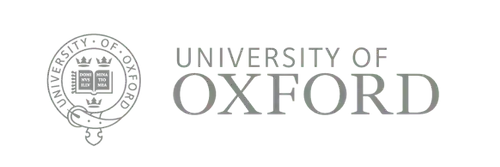Chandra Orrill
I am a mathematics educator interested in elementary and middle school who also does research on computational thinking.
Research Expertise
About
Publications
High school mathematics teachers’ discernment of invariant properties in a dynamic geometry environment
Educational Studies in Mathematics / Apr 04, 2022
Nagar, G. G., Hegedus, S., & Orrill, C. H. (2022). High school mathematics teachers’ discernment of invariant properties in a dynamic geometry environment. Educational Studies in Mathematics, 111(1), 127–145. https://doi.org/10.1007/s10649-022-10144-6
Teachers’ Understanding of Draggable Geometric Objects: Variance and Invariance in a Dynamic Geometry Environment
Digital Experiences in Mathematics Education / Jul 06, 2022
Nagar, G. G., Hegedus, S., & Orrill, C. H. (2022). Teachers’ Understanding of Draggable Geometric Objects: Variance and Invariance in a Dynamic Geometry Environment. Digital Experiences in Mathematics Education. https://doi.org/10.1007/s40751-022-00106-1
Exploring differences in practicing teachers’ knowledge use in a dynamic and static proportional task
Mathematics Education Research Journal / Sep 12, 2020
Brown, R. E., Orrill, C. H., & Park, J. (2020). Exploring differences in practicing teachers’ knowledge use in a dynamic and static proportional task. Mathematics Education Research Journal, 34(2), 419–436. https://doi.org/10.1007/s13394-020-00350-x
Teachers’ abilities to make sense of variable parts reasoning
Mathematical Thinking and Learning / Jul 17, 2020
Orrill, C. H., & Millett, J. E. (2020). Teachers’ abilities to make sense of variable parts reasoning. Mathematical Thinking and Learning, 23(3), 254–270. https://doi.org/10.1080/10986065.2020.1795567
Framing a robust understanding of proportional reasoning for teachers
Journal of Mathematics Teacher Education / Jan 01, 2020
Weiland, T., Orrill, C. H., Nagar, G. G., Brown, R. E., & Burke, J. (2020). Framing a robust understanding of proportional reasoning for teachers. Journal of Mathematics Teacher Education, 24(2), 179–202. https://doi.org/10.1007/s10857-019-09453-0
When Constant in a Proportional Relationship Isn’t Constant—A Sign of Not-So-Shared Understandings
Investigations in Mathematics Learning / Jun 07, 2020
Brown, R. E., Epstein, M. L., & Orrill, C. H. (2020). When Constant in a Proportional Relationship Isn’t Constant—A Sign of Not-So-Shared Understandings. Investigations in Mathematics Learning, 12(3), 194–207. https://doi.org/10.1080/19477503.2020.1772035
International perspectives on frameworks for mathematics teachers’ knowing and quality of mathematics instruction
Research in Mathematics Education / May 03, 2020
Manizade, A., & Orrill, C. H. (2020). International perspectives on frameworks for mathematics teachers’ knowing and quality of mathematics instruction. Research in Mathematics Education, 22(2), 93–97. https://doi.org/10.1080/14794802.2020.1798809
Revisiting purpose and conceptualisation in the design of assessments of mathematics teachers’ knowledge
Research in Mathematics Education / Jan 31, 2020
Orrill, C. H., Copur-Gencturk, Y., Cohen, A., & Templin, J. (2020). Revisiting purpose and conceptualisation in the design of assessments of mathematics teachers’ knowledge. Research in Mathematics Education, 22(2), 209–224. https://doi.org/10.1080/14794802.2019.1702893
Mathematics teachers’ ability to identify situations appropriate for proportional reasoning
Research in Mathematics Education / Apr 30, 2019
Weiland, T., Orrill, C. H., Brown, R. E., & Nagar, G. G. (2019). Mathematics teachers’ ability to identify situations appropriate for proportional reasoning. Research in Mathematics Education, 21(3), 233–250. https://doi.org/10.1080/14794802.2019.1579668
Examining the design features of a communication-rich, problem-centred mathematics professional development
International Journal of Mathematical Education in Science and Technology / Sep 07, 2017
de Araujo, Z., Orrill, C. H., & Jacobson, E. (2017). Examining the design features of a communication-rich, problem-centred mathematics professional development. International Journal of Mathematical Education in Science and Technology, 49(3), 323–340. https://doi.org/10.1080/0020739x.2017.1373153
Technology Integration in Mathematics
Developing Technology-Rich Teacher Education Programs / Jan 01, 2012
Orrill, C. H., & Polly, D. (2012). Technology Integration in Mathematics. Developing Technology-Rich Teacher Education Programs, 337–356. https://doi.org/10.4018/978-1-4666-0014-0.ch022
Building technology-based, learner-centered classrooms: The evolution of a professional development framework
Educational Technology Research and Development / Mar 01, 2001
Orrill, C. H. (2001). Building technology-based, learner-centered classrooms: The evolution of a professional development framework. Educational Technology Research and Development, 49(1), 15–34. https://doi.org/10.1007/bf02504504
Connection Making: Capitalizing on the Affordances of Dynamic Representations Through Mathematically Relevant Questioning
The SimCalc Vision and Contributions / Jan 01, 2013
Orrill, C. H. (2013). Connection Making: Capitalizing on the Affordances of Dynamic Representations Through Mathematically Relevant Questioning. Advances in Mathematics Education, 285–298. https://doi.org/10.1007/978-94-007-5696-0_16
Educational technology research in postsecondary settings: Promise, problems, and prospects
Journal of Computing in Higher Education / Mar 01, 2005
Hannafin, M., Orrill, C., Kim, H., & Kim, M. (2005). Educational technology research in postsecondary settings: Promise, problems, and prospects. Journal of Computing in Higher Education, 16(2), 3–22. https://doi.org/10.1007/bf02961472
Making sense of double number lines in professional development: exploring teachers’ understandings of proportional relationships
Journal of Mathematics Teacher Education / May 19, 2012
Orrill, C. H., & Brown, R. E. (2012). Making sense of double number lines in professional development: exploring teachers’ understandings of proportional relationships. Journal of Mathematics Teacher Education, 15(5), 381–403. https://doi.org/10.1007/s10857-012-9218-z
Mathematics Teachers' Reasoning About Fractions and Decimals Using Drawn Representations
Mathematical Thinking and Learning / Jul 01, 2011
Lee, S. J., Brown, R. E., & Orrill, C. H. (2011). Mathematics Teachers’ Reasoning About Fractions and Decimals Using Drawn Representations. Mathematical Thinking and Learning, 13(3), 198–220. https://doi.org/10.1080/10986065.2011.564993
Measuring Middle Grades Teachers' Understanding of Rational Numbers with the Mixture Rasch Model
The Elementary School Journal / Mar 01, 2010
Izsák, A., Orrill, C. H., Cohen, A. S., & Brown, R. E. (2010). Measuring Middle Grades Teachers’ Understanding of Rational Numbers with the Mixture Rasch Model. The Elementary School Journal, 110(3), 279–300. https://doi.org/10.1086/648979
Supporting Online PBL: Design Considerations for Supporting Distributed Problem Solving
Distance Education / May 01, 2002
Orrill, C. H. (2002). Supporting Online PBL: Design Considerations for Supporting Distributed Problem Solving. Distance Education, 23(1), 41–57. https://doi.org/10.1080/01587910220123973
Understanding a Teacher's Reflections: A Case Study of a Middle School Mathematics Teacher
School Science and Mathematics / Oct 01, 2007
Kwon, N.-Y., & Orrill, C. H. (2007). Understanding a Teacher’s Reflections: A Case Study of a Middle School Mathematics Teacher. School Science and Mathematics, 107(6), 246–257. Portico. https://doi.org/10.1111/j.1949-8594.2007.tb18286.x
When a Peer Group Isn’t Needed: Effective Online Learning in an Individual Mentoring Model
Learning and Instructional Technologies for the 21st Century / Oct 20, 2008
Wise, A. F., Orrill, C. H., Duffy, T. M., Valle, R. del, & Kirkley, J. R. (2008). When a Peer Group Isn’t Needed: Effective Online Learning in an Individual Mentoring Model. Learning and Instructional Technologies for the 21st Century, 1–23. https://doi.org/10.1007/978-0-387-09667-4_6
Education
Indiana University
Ph.D., Instructional Systems Technology / December, 1999
Indiana University
M.S., Instructional Systems Technology / December, 1996
University of Alabama
B.A., Honors College - Computer Applications in Music / May, 1993
Experience
University of Massachusetts Dartmouth
Professor / January, 2010 — Present
Director - Kaput Center for Research & Innovation in STEM Education / July, 2017 — Present
Chair - Department of STEM Education & Teacher Development / July, 2013 — June, 2017
University of Georgia
Research Scientist / September, 2000 — December, 2010
Ohio University
Assistant Professor / September, 1999 — August, 2000
Links & Social Media
Join Chandra on NotedSource!
Join Now
At NotedSource, we believe that professors, post-docs, scientists and other researchers have deep, untapped knowledge and expertise that can be leveraged to drive innovation within companies. NotedSource is committed to bridging the gap between academia and industry by providing a platform for collaboration with industry and networking with other researchers.
For industry, NotedSource identifies the right academic experts in 24 hours to help organizations build and grow. With a platform of thousands of knowledgeable PhDs, scientists, and industry experts, NotedSource makes connecting and collaborating easy.
For academic researchers such as professors, post-docs, and Ph.D.s, NotedSource provides tools to discover and connect to your colleagues with messaging and news feeds, in addition to the opportunity to be paid for your collaboration with vetted partners.
Expert Institutions





Proudly trusted by





